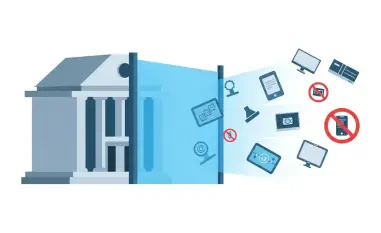What happens when a seemingly harmless email invitation turns into a gateway for espionage? In a world where digital tools are indispensable, a sophisticated cyberespionage campaign has exploited a critical flaw in Chrome, exposing organizations to invasive spyware with roots in a notorious past. This alarming breach, driven by a zero-day vulnerability, has targeted high-value sectors with precision, raising urgent concerns about the security of everyday browsers and the shadowy legacies behind modern cyber threats.
The Stakes of Digital Espionage: Why This Threat Demands Attention
The significance of this breach cannot be overstated, as it reveals how vulnerabilities in widely used software like Chrome can become weapons for state-sponsored actors. Dubbed Operation ForumTroll, this campaign has zeroed in on industries such as government, finance, and media, particularly in regions like Russia. The exploitation of a Chrome zero-day flaw, identified as CVE-2025-2783, alongside a Firefox vulnerability, underscores a growing trend of browser-based attacks designed for covert surveillance, echoing tactics from historically controversial entities in the cyber realm.
Beyond the immediate impact on targeted organizations, this incident highlights a persistent challenge in cybersecurity: the reemergence of spyware linked to past scandals. The connection to Memento Labs, a successor to an infamous Italian surveillance firm, suggests that old tools and methodologies are being repurposed for today’s digital battlegrounds. This evolving threat landscape demands urgent attention, as personal privacy and organizational security hang in the balance amid relentless espionage efforts.
Inside Operation ForumTroll: A Masterclass in Cyber Intrusion
Operation ForumTroll unfolds as a meticulously crafted attack, beginning with phishing emails disguised as forum invitations. These messages lure unsuspecting victims to malicious websites via personalized, short-lived links, exploiting the Chrome zero-day vulnerability to bypass sandbox protections. Once inside, attackers execute shellcode, laying the groundwork for deeper infiltration into the systems of targeted entities across education, research, and government sectors.
The next phase introduces an insidious payload known as LeetAgent, a spyware active since at least 2022, notorious for capabilities like keylogging and data theft. By manipulating Windows registry entries to ensure persistence, this malware communicates with command-and-control servers over HTTPS, often hosted on robust infrastructure like Fastly.net. The precision and adaptability of these tactics reveal a calculated effort to maintain long-term access to compromised systems.
Further analysis points to striking similarities between LeetAgent and other tools in the attackers’ arsenal, hinting at a unified toolkit. Shared code and operational strategies with spyware developed by Memento Labs suggest a sophisticated network of threats, continuously evolving to outmaneuver detection. This convergence of methods paints a troubling picture of coordinated cyberespionage that leverages technical exploits and social engineering with equal finesse.
Echoes of a Controversial Past: Linking Modern Threats to Historical Roots
The ties between Operation ForumTroll and Memento Labs bring to light a lineage of surveillance tools tracing back to a major data leak in 2015. That breach exposed the inner workings of Remote Control Systems, spyware once sold to governments for monitoring purposes. Now, under a new banner since a 2019 acquisition, the successor entity continues to develop advanced espionage software, with overlapping features observed in current campaigns.
Expert analysis from cybersecurity researchers at Kaspersky provides deeper insight into this continuity, noting similarities in file paths and evasion techniques across different spyware variants. “The sophistication of these tools, especially their anti-analysis mechanisms, shows a clear intent to operate undetected for extended periods,” a Kaspersky researcher emphasized. Such observations highlight how historical frameworks are being adapted to exploit modern vulnerabilities like the Chrome zero-day.
While the specific spyware used in this operation differs from other known variants like Dante, the shared tactics indicate a broader ecosystem of threats. Kaspersky’s findings suggest that state-sponsored actors are not only reusing old methodologies but also innovating to stay ahead of defensive measures. This blend of legacy and novelty in cyberespionage tools underscores the persistent challenge of securing digital environments against well-resourced adversaries.
Decoding the Technical Playbook: How the Chrome Exploit Works
At the heart of Operation ForumTroll lies the exploitation of CVE-2025-2783, a sandbox escape vulnerability in Chrome that allows attackers to bypass critical security barriers. This flaw, paired with a similar issue in Firefox, enables the execution of malicious code directly on a victim’s system, often without any visible signs of compromise. The technical precision required for such an exploit points to a high level of expertise behind the campaign.
Once the initial breach occurs, a malware loader is deployed to facilitate the installation of LeetAgent, which then embeds itself into the system through registry hijacking. This method ensures that the spyware remains active even after reboots, silently collecting sensitive data and relaying it to remote servers. The use of short-lived links in phishing emails further complicates detection, as these URLs often expire before they can be analyzed by security teams.
The broader implications of such technical exploits are staggering, as they target software used by billions worldwide. With browsers serving as primary gateways to the internet, vulnerabilities like these offer attackers a direct path to sensitive information. This reality emphasizes the need for constant vigilance and rapid response to emerging threats, as even the most trusted tools can become conduits for espionage.
Safeguarding the Digital Frontier: Steps to Counter Zero-Day Threats
In response to the dangers posed by campaigns like Operation ForumTroll, organizations must adopt a proactive stance against zero-day vulnerabilities. Keeping browsers updated with the latest patches is a fundamental step, as it addresses known flaws before they can be exploited. Equally important is the deployment of robust email filtering systems to intercept phishing attempts that often serve as the entry point for such attacks.
Training staff to recognize social engineering tactics remains a critical defense mechanism, particularly for sectors at high risk of targeted espionage. Awareness of suspicious links and unexpected invitations can prevent initial compromises, while endpoint detection tools can monitor for unusual activities like unauthorized registry changes. These layered defenses are essential to disrupt the multi-stage strategies employed by sophisticated threat actors.
Staying informed about evolving cyber threats through regular updates from cybersecurity advisories also plays a vital role. By fostering a culture of security awareness and leveraging advanced monitoring solutions, entities can better position themselves against unseen dangers. As the landscape of digital espionage continues to shift, adopting these practical measures offers a pathway toward greater resilience in an increasingly hostile online environment.
Reflecting on a Hidden War: The Path Forward
Looking back, the intricate web of Operation ForumTroll reveals how deeply embedded cyberespionage has become in the digital fabric, exploiting tools as ubiquitous as web browsers. The connection to a controversial past through Memento Labs serves as a stark reminder that surveillance legacies persist, adapting to new technologies with alarming efficiency. Each stage of the attack, from phishing to payload deployment, exposes vulnerabilities that demand immediate and sustained attention.
Moving forward, the focus shifts to collaborative efforts between software developers, cybersecurity experts, and organizations to close the gaps exploited by zero-day threats. Innovations in threat intelligence sharing emerge as a promising avenue, enabling faster identification of new exploits before they cause widespread harm. The lessons learned from this campaign underscore a collective responsibility to fortify defenses, ensuring that the tools of daily life do not become instruments of covert intrusion.













